Enab Baladi’s Investigation Team
Murad Abdul Jalil | Ahmed Jamal | Dia Odeh
The airplanes that have been spotted by the interactive air navigation maps cover the skies of the Middle East, while Syria’s map is clear most of the time, with no passenger planes passing between two countries, but with few signs of airplanes landing at or taking off from Damascus International Airport. This is because Syria, which has a strategic location in the region, has not been a safe passage for commercial land and sea transit traffic over the past seven years.
With the efforts of the Syrian regime and its ally, Russia, to open the file of reconstruction, following the great military progress during 2017 and 2018, the need for outlets, through which companies and investors can enter, has become an urgent need. However, the regime has tried to meet it by pushing forward for opening land crossings with neighboring countries, especially Jordan.
The Syrian regime has also started developing an economic strategy that preempts the reconstruction phase by enacting special laws and raising the land and air transit fees.
The regime’s decisions to raise fees has been aimed at “achieving economic benefit,” in order to replenish its treasury with foreign exchange, after withdrawing millions of dollars from the Central Bank of Syria to meet the needs of military operations and the requirements of the country. Prime Minister Imad Khamis confirmed this on May 21, during his meeting with representatives of labor unions, according to pro-regime newspaper al-Watan, saying that “the previous government withdrew $ 17 billion from the State Treasury to secure the country’s requirements between 2012 and 2013.”
In this file, Enab Baladi sheds the light on the impact of the government’s decisions concerning the raising of land and air transit fees, the regime’s aim behind these decisions, and the economic benefit it seeks to achieve, and tires to determine the legality of activating international transit in Syria under the sanctions imposed on the regime’s government.
Investment in transit before its start…
The regime exploits Syria’s land site
After al-Assad’s forces regained control over border areas with neighboring countries, over the past two years, the Syrian regime has sought to reopen the crossings in the context of forcing the international community to recognize its legitimacy and seeking economic benefits.
The first of these crossing points was Nasib Border Crossing with Jordan. The regime tried to set conditions related to the normalization of political relations with Oman in order to open it, especially since politics and economy are inseparable. The crossing is considered the lifeline of several countries, as it is Lebanon and Syria’s gateway to the Gulf States, while it is the gateway of Jordan and the Gulf states to the Mediterranean and Europe.
After negotiations and talks, the two sides agreed to open the crossing on October 15, 2018, marking the return of trade and economic transactions, followed by new decisions related to the extension of the crossing’s activity period and the organization of trucks’ transit through the border crossing.
In addition to Nasib Border Crossing, there have been talks, for months, with the Iraqi side to reopen the regime-controlled al-Qa’im Border Crossing in the city of al-Bukamal in Deir ez-Zor. The Iraqi Army Chief of Staff, Lieutenant General Othman al-Ghanmi, stressed during a joint meeting with his Iranian and Syrian counterparts in Damascus, March 18, which the crossing will be opened in a few days, but it is still closed so far without mentioning the reasons.
As for the opposition-held northern Syrian borders with Turkey, last year, Russia and the regime attempted through the Astana talks to open two strategic roads: the first is the Damascus-Aleppo International Highway, and the second is Aleppo-Gaziantep route passing by the areas controlled by opposition factions based in the northern countryside, up to Turkish territories.
The Syrian regime preempted this with raising the fees of the trucks’ transit through border crossings. According to a statement issued by the Ministry of Transport at the regime’s government, on September 10, 2018, the new fees are calculated according to the following equation: Vehicle’s Existing or Empty Weight (Tons) ✖️ Mileage (Km) ✖️ 10% = (…) USD, while it used to be multiplied by 2%.
The Ministry announced that the new fees apply to Syrian, Arab and foreign loaded and empty trucks when crossing Syrian territories, along with the imposition of a fine of 30 dollars on each additional ton of load, and 300 dollars in case the load surpasses the trucks’ basic dimensions.
The head of the regime’s government, Imad Khamis, considered during a session of the People’s Council of Syria, on September 24, that the crossing will invest in accordance with the national interest, and that the increase of transit fees will benefit the economic turnouts, stressing that the fees had been adjusted so as to serve Syria’s interests. The fees have thus been raised from $ 10 to $ 62 for a truckload of up to four tons.
The Syrian regime lurking at seaports investment
Syria’s position on the eastern Mediterranean coast gives it a privileged location, being a coastal gateway to the Asian continent. Despite its location, it lacks the existence of straits and waterways on its coast that would help it achieve the economic benefit, such as the straits of Hormuz, Bab-el-Mandeb, Bosphorus, Gibraltar and the Suez Canal.
However, its position on the crossroads of exchanges and trade between the three continents, Asia, Europe and Africa, gives its ports great importance in the import and export of goods to the Middle Eastern countries, as well as the possibility of passing power lines through the Gulf States and Iran to the European Union.
Syrian Agriculture Minister Ahmad Fatih al-Qadri announced, during a meeting with a delegation from the Association of Jordanian Exporters in Damascus on October 22, reaching an agreement with the Jordanian side to facilitate the export of Jordanian fruits and vegetables to Eastern European countries via the Syrian Port of Tartus.
Iran announced on February 2, via the head of the Islamic Republic of Iran Railways (IRIR) Saeed Rasouli, that a major project is being developed linking the Port of Bandar Khomeini on the Iranian side of the Gulf Sea with the Port of Latakia on the Mediterranean Sea, and that the first stages of the project will start after three months.
In order to encourage neighboring countries to export their products through the Syrian port, the regime’s government has maintained the fees collected from trucks coming through land ports to the seaports and kept them multiplied by 2% instead of 10%. The equation has thus become: Vehicle’s Existing or Empty Weight (Tons) ✖️ Mileage (Km) ✖️ 10% = (…) USD between the land-to-land crossings. As for the land-to-sea crossings and vice versa, the new fees have become calculated according to the equation: Vehicle’s Existing or Empty Weight (Tons) ✖️ Mileage (Km) ✖️ 2% = (…) USD.
Minister of Transport Ali Hammoud considered on September 13, 2018, according to the ministry’s Facebook page, that keeping the fees at seaports is intended to encourage maritime transport and give the Syrian ports power and position, in order to become the interface of transit coming from outside countries, to achieve competition with neighboring ports and to give them additional advantages, as well as reciprocity for Arab and foreign cars and drivers in terms of fees and visa.
Replenishing the treasury with dollars
The Syrian regime’s decisions are aimed at supporting and replenishing the State Treasury with “large” revenues, benefiting from the thousands of trucks that have been passing on a daily basis through transit from the neighboring countries (Lebanon, Jordan, Iraq and Turkey), which increases the regime’s profits.
According to the formula of the sea transport fees imposed by the regime (2%), the crossing of one truck weighing 16 tons from Nasib Border Crossing to the Port of Latakia (450 km) requires the payment of $ 144, and $ 324 for a truck weighing 36 tons. As for the land transport fees, they increase in accordance with the equation by a 10% rate and following to the distance required for the truck.
Amid absence of official statements from the Ministry of Transport on the number of trucks that were passing on a daily basis through Syrian territories in the past, Jordanian truck owners’ spokesperson, Mohammed Khair al-Daoud, announced in December 2016 that more than 150 Brad trucks a day were being exported to Syria before the closure of the land crossings in 2013, along with 50 Prada trucks exported to Lebanon, Eastern Europe and Turkey (through Syria), while local website al-Iqtisadi mentioned that 7,000 trucks had been crossing Syria every day.
For his part, Economic analyst Munaf Quman considered that the raising of the fees came amid a financial crisis the regime has been facing, as any means that enables it to collect money will be useful to it, and this applies to fees of crossing the Syrian airspace.
In reference to the benefits brought by raising fees, Quman told Enab Baladi that service allowances and state property revenues are a budget item, no less important than taxes and fees item. In 2010, service allowances and state property revenues amounted to 42 billion and 816 million Syrian pounds, representing 15% of the total tax revenues and fees, worth 278,428 billion Syrian pounds.
According to Quman, the allowances item fell significantly in 2014 to reach 2 billion and 254 million Syrian pounds, the lowest level ever. The contribution of this item to the budget of 2019 was estimated at 14 billion and 420 million Syrian pounds, accounting for 2.5% of the total revenues of taxes and fees, which amounted to 563 billion and 50 million Syrian pounds in 2019.
Quman clarified that data (figure and percentage) may actually be very low, but the regime is seeking to bring these revenues back in shape so as to contribute to the public treasury and reinforce budget.
He claimed that the revenues of the land and air crossings are not satisfying the needs of the regime, but are rather complementary. The regime was accustomed to relying on a variety of tax sources, fees, allowances and services and the budgetary used to bear fiscal deficit.
After 2011, the revenues of the regime decreased as well as its responsibility. However, in 2010, revenue and service allowances accounted for only 15% of total tax and duty revenues, and therefore it becomes a small percentage that cannot be sufficient enough to meet its needs.
The regime’s foreign exchange resources are “insufficient. On May 22, the head of the regime’s government, Imad Khamis, declared the country to be in need for 200 million dollars per month to secure oil derivatives and 33.35 million dollars for grain, in addition to other requirements.
Land crossings linking Syria to the neighboring countries
Empty Airspace…
Additional fees for regional air transit
Taking advantage of the geographical location of Syria, the regime has worked to increase its financial reserves by raising the fees for shipping services and facilities offered to international aircraft using the Syrian airspace without landing by 50%, amid in the almost total isolation imposed on Syria.
Al-Watan newspaper quoted the director-general of the Civil Aviation Organization, Iyad Zeidan, on July 7, as he reported the decision saying that the Economic Committee approved the amendment of the service allowances stipulated in Article 1 of Decree No. 404 for 2000, taking into consideration the greatest heavyweight of each aircraft approved by the General Organization of Civil Aviation, in a way that commensurate with what is currently in place.
According to the new resolution, any aircraft weighing no more than 75 tons shall pay 150 dollars (in lump sum) in Syrian airspace for one time, in addition to 2.10 dollars per additional ton for 76 to 200 tons aircraft. Another, 2.4 dollars per ton are paid for aircraft weighing 201 tons and above, according to Zeidan.
International companies crossing Syrian airspace are limited to Iraqi airlines, the Lebanese “Middle East Airline” (MEA) and Qatar Airways, while some Iranian companies and Iraqi Fly Baghdad are landing at Syrian airports, according to Zeidan. He added that raising fees for air traffic aims to improve the organization’s revenues and benefit from the geographical location of Syria, especially as most airlines stopped landing and transit at Syrian airports in Syrian airspace for political reasons.
The director of the organization believes the prices to be “objective” and “proportionate with the prices offered by neighboring countries and maybe even less,” and that the revenues the organization made in the first semester of 2019 amounted to three million dollars.
This move took place when Qatar and Syria concluded an agreement last April allowing the Ministry of Transport of the regime to let Qatari companies cross Syrian airspace. The Minister of Transport, Ali Hammoud, said that the Qatari companies requested to cross Syrian airspace, and the ministry approved following the principle of reciprocity, “for the Syrian Arab Airlines crosses the Qatari airspace and did not block the lines to Doha throughout the war. This is in addition to the Syrian airspace’s additional revenues made in foreign currency for the benefit of the country. ”
The deal offered reciprocal advantage for both Syria and Qatar, for crossing the Syrian airspace contributed to reducing flight time by approximately one hour. The flight before 2011 Lebanon from Doha took up to three hours and 31 minutes. Then, the flight would take off from Beirut to the Turkish, Syrian, then Iranian airspace heading south to Doha.
The regime also raised the fees of leaving Syria by air, land and sea by 50%, through a presidential decree issued by the head of the regime, Bashar al-Assad. Thus, under the new regulations, airport transportation fees have been increased to reach 5.000 Syrian pounds (about 9.6 dollars), as well as to 2.000 Syrian pounds for each departure via land or seaports, reported SANA last September.
The new law indicated that: “President Bashar al-Assad issued a decree imposing an amount of 5.000 Syrian pounds for every person who leaves the country by air, 2.000 Syrian pounds for anyone who leaves through land or sea and 10.000 pounds for every Syrian vehicle leaving through land or sea.”
International airlines to Syria
With the decline of military operations in Syria, accompanied by a Russian plan to rehabilitate the Syrian regime internationally and regionally, several countries began studying the resumption of flights to Syria as an initial step to normalize relations and re-establish airline companies in the Damascus International Airport, including Arab countries and Russian companies.
The Executive Vice President of Emirates Airlines and Chief Operating Officer, Adel Reza, announced last May that the Syrian market is important and profitable, saying: “We are waiting for the decision of the Civil Aviation Authority to resume our flights to Damascus.”
Iraqi Airways spokesman, Laith al-Rubaie, said in the same month that Iraqi Airways would resume direct flights from Baghdad to Damascus International Airport for the first time since 2011. However, the date for flights was delayed indefinitely, as the Syrian Ministry of Transport received a decision to postpone the flight of the Iraqi Airways; according to a statement released on May 18, in which the regime declared that the postponement decision was related to the completion of some administrative and regulatory procedures between the company and the Syrian Civil Aviation Authority.
These shifts have started earlier this year, through surveys conducted by Arab airline companies, including Oman Air, Gulf Air and Etihad Airways well as Royal Jordanian Airlines, at the Damascus International Airport, in preparation for the resumption of flights after a break of more than seven years due to the security situation in Syria.
However, these surveys were not concretized on the ground, but rather remained in the form of declarations that were not officially activated. The Syrian airspace did not witness the resumption of these companies’ flights without receiving any clear justification.
The most prominent Syrian airports and ports
Do international sanctions hinder transit and navigation agreements with Syria?
The resumption of trade exchange with Syria may be a concern for countries that are trying to benefit from the Syrian border crossings because of the international sanctions imposed on individuals, companies and sectors associated with the Syrian regime, as well as their focus on the regime with all its institutions, government and individuals.
Ibrahim Alabi, the director of the Syrian Legal Development Program (SLDP), stated that there are no provisions in the international law that obstruct the opening of the Syrian border crossings or the activation of trade movement there. However, the international sanctions are the most influential factor, as they control the revival of trade exchange with the Syrian regime including ships, ports, land crossings and airlines.
Alabi told Enab Baladi: “Legally speaking, the government of the Syrian regime is considered as legitimate and internationally recognized, which means that there is nothing to prevent establishing trade deals with it. However, there are international sanctions imposed on the aviation, ports, ships and other sectors, which affect international trade crossings with Syria.”
Human rights reports that document the funding of militias, involved in assassinating and abusing the Syrian people, from border crossings’ profits, along with the sanctions, contribute also to the disruption of trade between the regime and other countries, according to Alabi.
The US sanctions, which include individuals and companies dealing with the regime, forced the oil shipping community to refrain from moving oil shipments to Syria after warnings were issued in March 2018, according to a statement from the Office of Foreign Assets Control (OFAC).
Companies, sectors and individuals who breach the sanctions and international laws are subject to additional sanctions, similar to the ones imposed by Germany and France on Iranian air carrier Mahan Air last March for charging military aid in support of the Syrian regime, resulting in the cancellation of the company’s license in France and Germany. As such, Iran’s Mahan Air has been on the list of the US sanctions since July 2018.
On the domestic level, Washington imposed sanctions in 2016 against Cham Wings Airlines, one of the most famous private airlines in Syria, on charges of sending planes from Damascus and Latakia to Russia’s Rostov International Airport in order to transport Russian soldiers to help al-Assad in his war against the opposition, reported Reuters.
During the past two years, Damascus International Airport has been subjected to repeated Israeli bombardment targeting Iranian military shipments coming to the Syrian regime and Hezbollah. This may affect the results of the assessment of Arab airlines or cancel the return of flights to Syria.
What do European sanctions say?
Council Regulation (EU) No. 36 against the Syrian regime prohibits dealing with individuals covered by the sanctions, such as those responsible for the violent repression of the civilian population in Syria who benefited from or supported the regime, including ministers of the Syrian government in power after May, 2011.
According to the list, these sanctions hinder the signing of agreements between the regime and Arab as well as foreign countries, as the regime’s ministers are also concerned with the European sanctions, raising international concern about the signing of any agreement that covers land crossings, sea and air.
According to the sanctions’ regulating text “individuals and entities are subject to freezing their funds and economic resources, as no funds or economic resources can be made available to them directly or indirectly or made available in their favor. The sanctions also apply to the provision of funds or economic resources to persons who are not covered by the sanctions lists, in the event that the final fate of such funds or resources is known to be covered by penalties.” Thus, “companies may not establish trade relations or provide funds to persons or entities on the sanctions list. On the other hand, if companies come to deal with funds or economic resources owned, maintained or controlled by the person concerned with the sanctions, or if these companies know or have reasonable motive to suspect they are dealing with funds or resources belonging to listed persons, they may be considered to breach the regulations.”
if you think the article contain wrong information or you have additional details Send Correction
النسخة العربية من المقال
-
Follow us :
Most viewed
- 311 casualties among government forces and civilians in Syrian coast
- Rights organization documents government and civilian deaths in Syrian coast
- Al-Shibani: Syria is facing a hidden and declared war
- Ankara supports Damascus... Moscow abdicates responsibility for events in coastal region
- The Makhlouf dynasty: privilege, power, and wealth












 A ship anchored in the Port of Latakia (Reuters)
A ship anchored in the Port of Latakia (Reuters)





 A
A
A
A
A
A
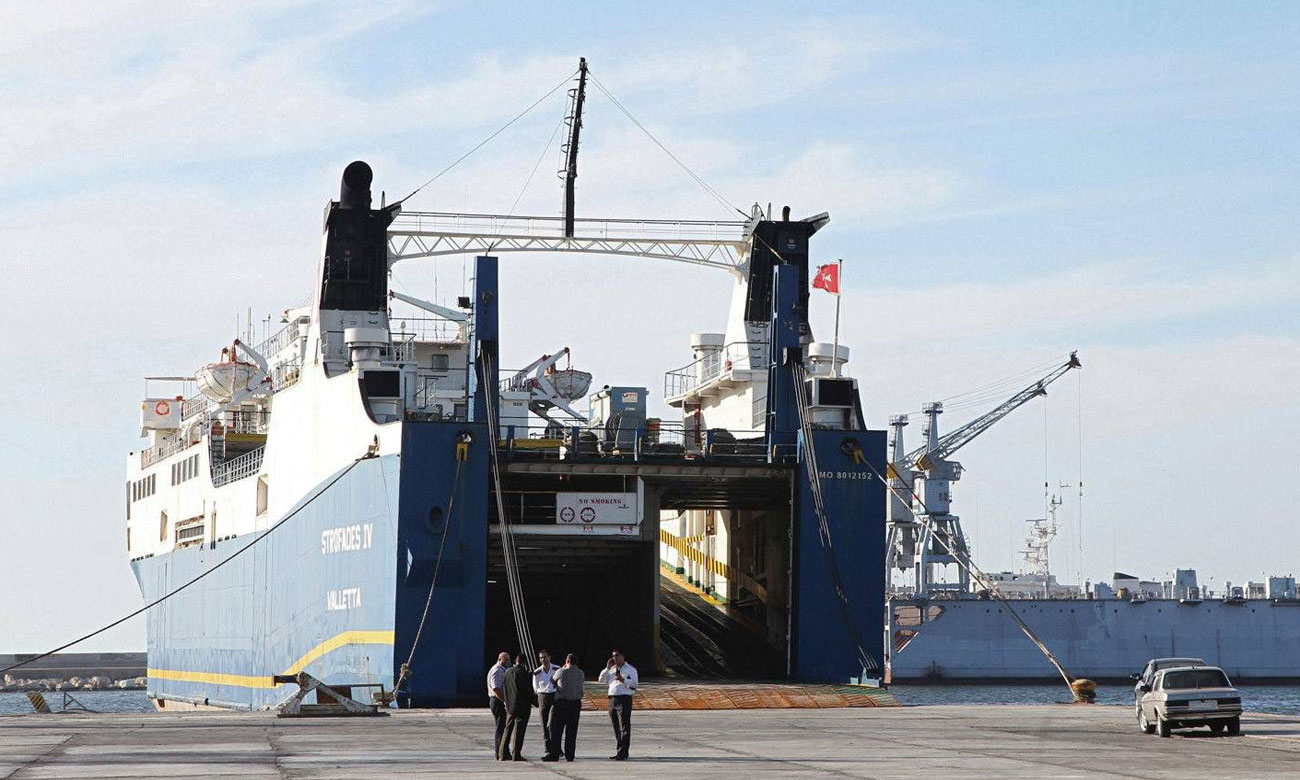
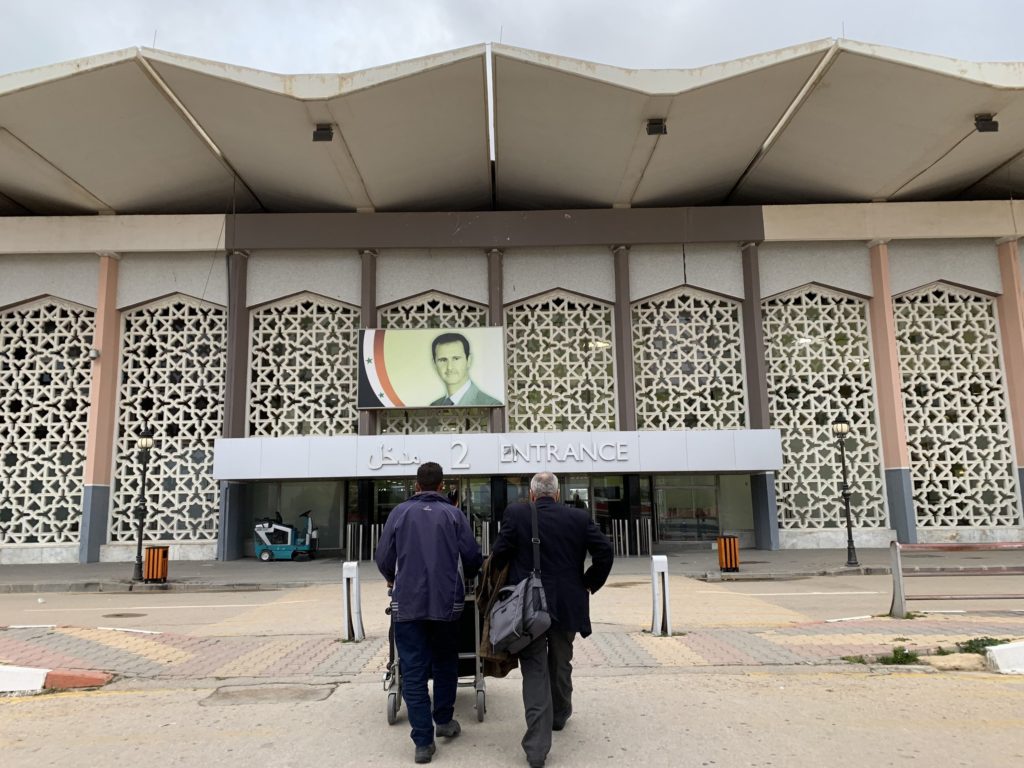

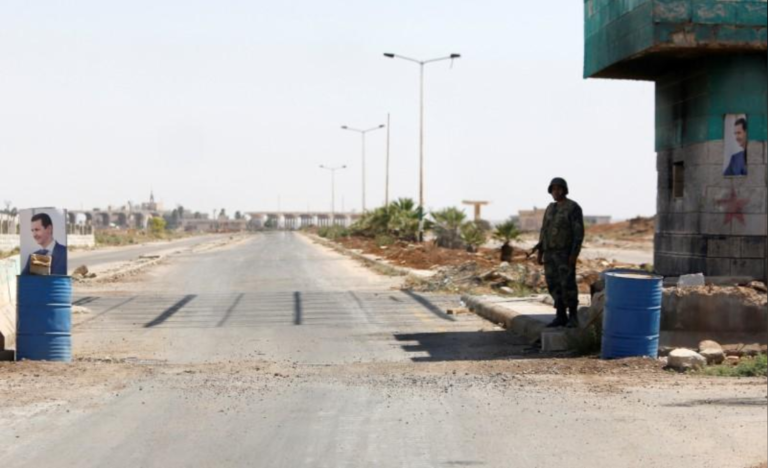
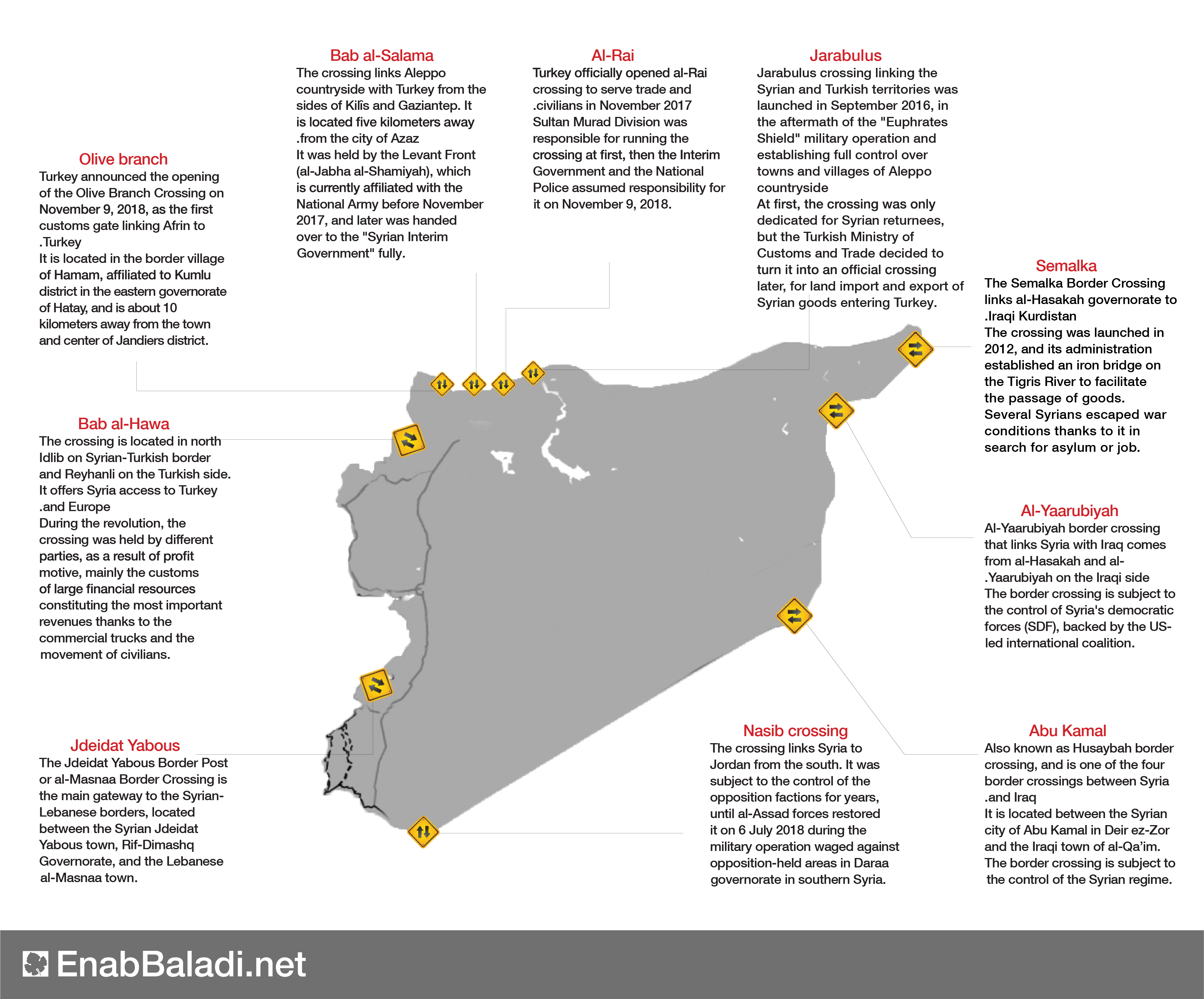

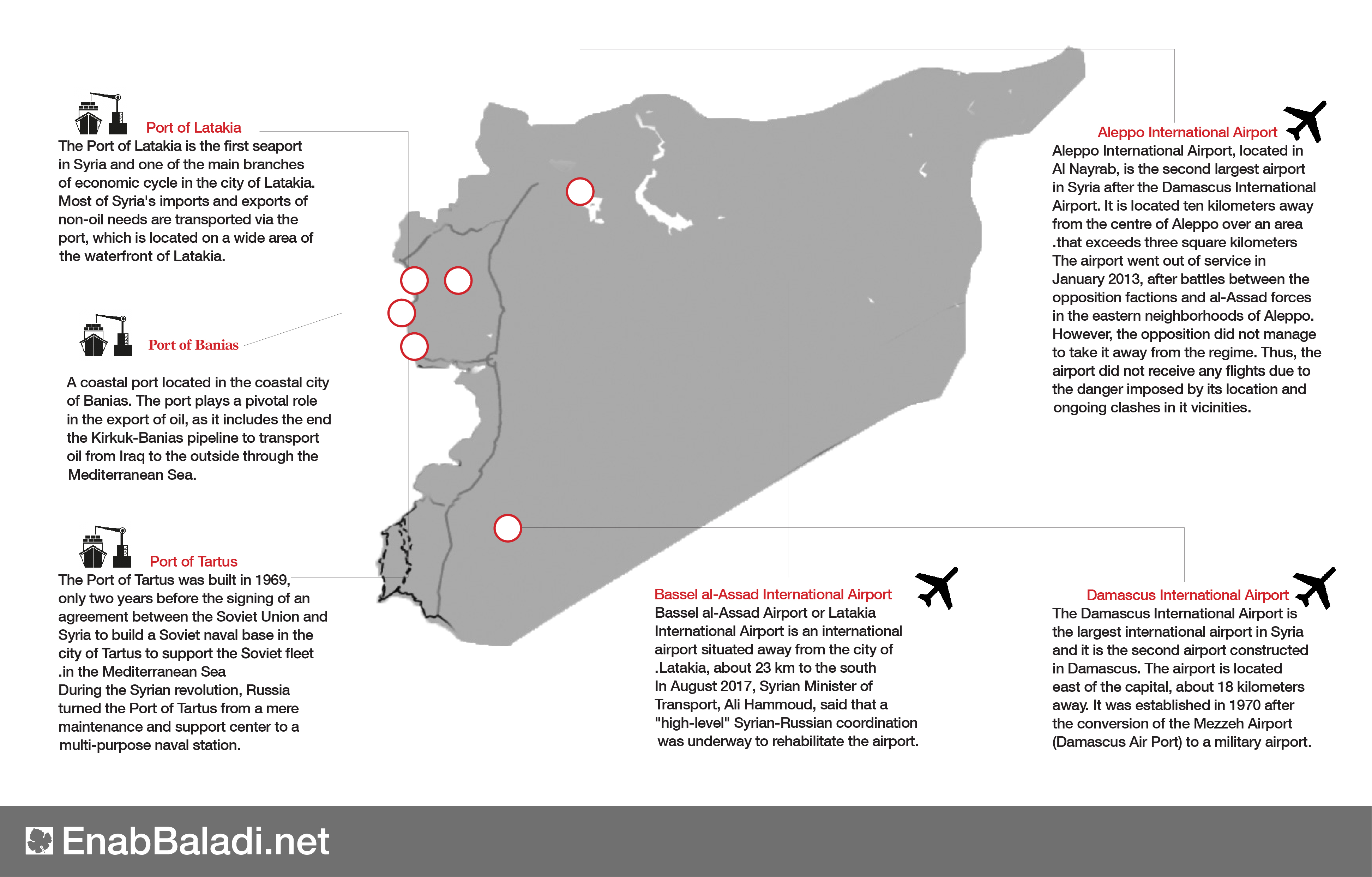


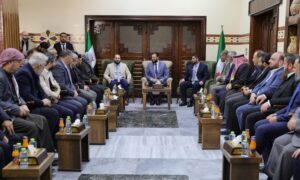

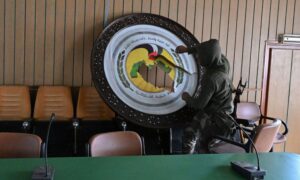
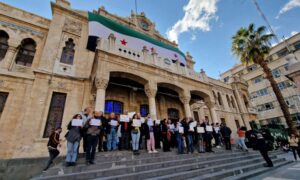
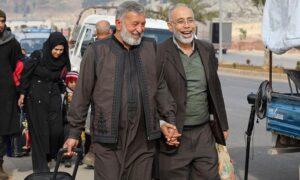
 More In-Depth
More In-Depth